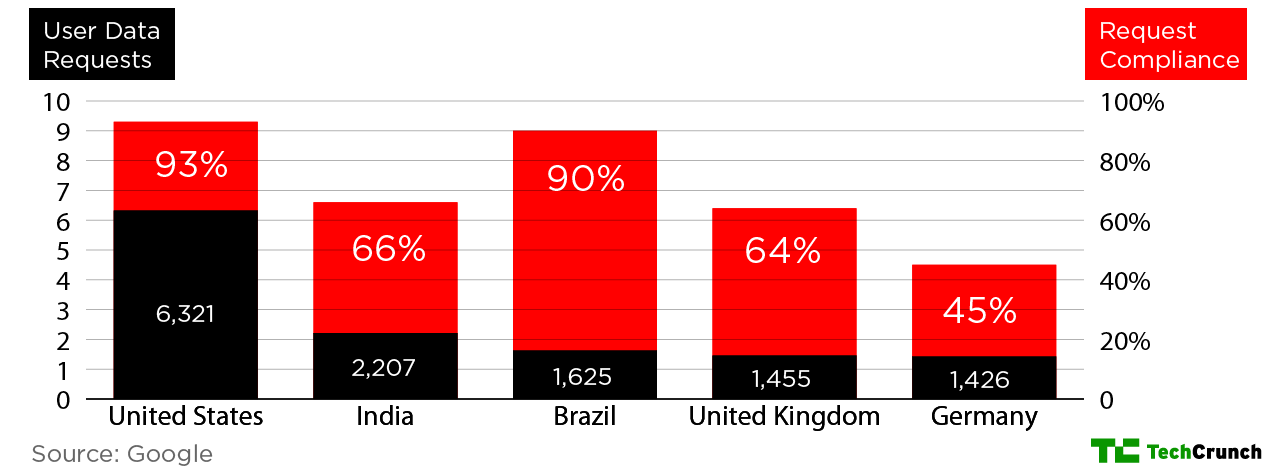 Google released an update to its Transparency Report today, detailing how government requests both for information about users and also for content removal from Google services. The numbers indicate a startling trend: in both cases, requests are on the rise, according to the latest data added to the report, which covers January to June 2012. Content takedown requests especially saw a significant spike in the first half of the year.
Google released an update to its Transparency Report today, detailing how government requests both for information about users and also for content removal from Google services. The numbers indicate a startling trend: in both cases, requests are on the rise, according to the latest data added to the report, which covers January to June 2012. Content takedown requests especially saw a significant spike in the first half of the year.
Requests for Google to hand over user info from governments around the world grew from 18,257 in the last half of 2011, to 20,938 in the first half of 2012. Those requests have been rising steadily since Google introduced the Transparency Report back in 2009, but it’s beginning to look like the growth rate of requests is accelerating. As for takedown requests, they actually decreased between 2010 and 2011, but shot up to 1,791 from 1,048 between the end of 2011 and the beginning of 2012. The 1,791 requests were aimed at getting 17.746 pieces of content removed.
Broken down by individual country, the U.S. led the charge for user data requests, with 7,969 coming from the United States government. Google either fully or partially complied with 90 percent of those requests, according to the report, which covered 16,281 individuals. India came in second, with 2,319 user data requests but only a 64 percent compliance rate from Google. That’s in keeping with past trends of both the top sources of requests and also Google’s willingness to hand over information.
Information removal requests are broken down by either court order or classified under “executive, police, etc.” Defamation remains the leading cause of takedown requests, with privacy and security coming up next. Surprisingly (or maybe not), “government criticism” is the third leading cause of requests. And despite the fact that requests for the removal of content actually rose considerably during the period, Google’s compliance percentage actually decreased slightly compared to the end of 2012. In fact, compliance continues to trend downward overall since it began being reported in 2010.
Google highlights some very interesting specific instances of content removal requests in the report, along with their country of origin. For instance, the search giant received a request to remove a YouTube video in Australia containing “statements made against members of law enforcement,” but Google didn’t comply. Google did partially comply with a Russian request to remove 160 YouTube videos, by blocking access to them in Russia. Some countries saw huge growth of content removal requests during this reporting period, including Turkey, where requests rose 1,013 percent compared to the end of 2011, and the U.K, where they grew by 98 percent.
Overall, it’s worth taking a look at the report in full if you’re interested in a relatively granular look at where, and in what circumstances Google is working with government organizations to control the flow of information for whatever reason.